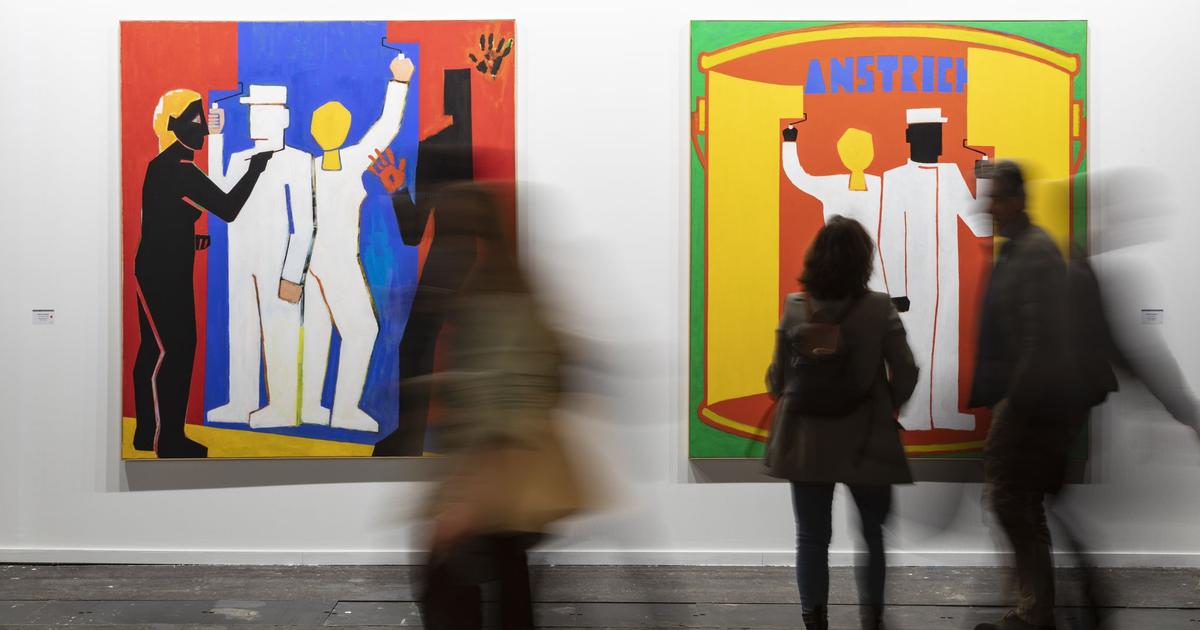During her brief assignment in Cuba, the new director of the National Intelligence Center, Esperanza Casteleiro, was surely able to verify that all that glitters in the sources that feed the reports on the island is not gold.
Her counterparts in the local secret services play at home with marked cards.
Overwhelmed by counterintelligence from the day she disembarked at the Havana airport, Casteleiro was immersed in the plot that, in 2009, struck down then-Cuban Vice President Carlos Lage and former Foreign Minister Felipe Pérez, who flirted with political flexibility and generational replacement against the gerontocracy, oblivious to the fact that their opening whims with businessmen and foreign leaders were watched by the organs of State Security.
More information
Miguel Díaz-Canel, the revolutionary executor
The Cuban engineer Conrado Hernández, friend of Lage's youth and representative of the Society for the Promotion and Industrial Reconversion of the Basque Government in Havana, frequented the Spanish diplomatic and business spheres, and enjoyed free passage in the leadership of the party and in the ministerial offices.
He was, therefore, a man desired by the CNI agents as a
deep throat
of the internalities of the regime during Fidel Castro's illness, his resignation and the appointment of his brother Raúl.
The espionage plot concluded with the defenestration of Lage and Pérez, the arrest of the equivocal Hernández, and the discreet repatriation of the Spanish spies.
Some sections of an operation that concluded with a bilateral trance resolved amicably by Minister Miguel Ángel Moratinos are still opaque, its development will have given Casteleiro a doctorate on the
modus operandi
of the seasoned Cuban intelligence services.
The question remains as to whether Hernández also served the revolution from the first day of his contacts with CNI agents, fundamentally because his high standard of living and facilities, in a country overwhelmed by scarcity and the repression of freedoms, could hardly get out free;
Lage and Pérez were unreliable, and the questions from the Spanish agents about the movements at the top of the regime were very useful information.
Judged without publicity, the
mole
disappeared from the map with penitentiary benefits under suspicion.
The espionage between Spain and Cuba, observed by the CIA since the agency's founding in 1947, was more conflictive during democracy than with Franco's dictatorship, whose funeral honors were accompanied by Fidel Castro with three days of official mourning because the Caudillo behaved good with your revolution, gosh!
They had established an entente attributable, between political and geostrategic factors, to the Galicianism and anti-Americanism of both.
Franco's secret services, busy capturing communists, socialists, anarchists and Freemasons, barely snooped into the Commander's affairs, perceived in El Pardo as more patriotic than Marxist.
They unfurled their antennas when the ephemeral Spanish Movement 1959 promoted an anti-Franco revolution from Mexico.
Until the arrival of Spanish democracy, there had been episodes typical of the Cold War, including the interrogation of war children returned from Moscow, in the three-year period 1957-1960, by the CIA and the Political-Social Brigade, some of whose Analysts abroad were creative in blaming Castro for Kennedy's assassination.
During the late Franco period, it is possible to assume the disorientation of the bulletins of the Central Documentation Service (SECED), predecessor of the Higher Defense Information Center (CESID) and the CNI.
Obtaining data only achievable from espionage, and its processing into confidential reports and proposals for government decision-making, is convoluted in Cuba, in whose cocktail parties and after-dinner conversations riddles, falsehoods, hooks and anecdotes elevated to the category of certainties.
A scalded diplomat recaptures the Jester soldier's warning in
Full Metal Jacket:
"Half the whores here are undercover Vietcong operatives, the other half have tuberculosis, so make sure you fuck the ones who cough."
Interpersonal relations, ideological solidarity against the United States, NATO or the capitalist model provide Cuba with the collaboration of the so-called Spanish agents of influence, who, from political militancy and sympathy with the revolutionary cause, provide information and help to officials of Cuban intelligence stationed in Spain.
The CIA was embroiled when it spied on Alfonso Guerra and was roaming freely in the Peninsula, the expulsion of spies with diplomatic status and the Spanish-Cuban controversies related to covert activities have been cyclical and silently deactivated;
Exceptionally, the noise prevented discretion, as when Cuban police tried to kidnap a compatriot deputy minister on the run in Madrid.
Almost nothing that happens in Cuba is ignored in Spain, which has always wanted to participate in an eventual transition of the regime towards democracy;
and vice versa: Spain matters because of family ties and common history, and because it intervenes in Europe and, sometimes, with Washington.
The history of bilateral altercations includes the invasion of the Spanish Embassy in Havana (1990), the challenge by the CNI before the National Court of Spanish citizenship granted to Cubans with residence suspected of espionage, and official warnings for inadmissible conduct.
Adolfo Suárez traveled to Cuba making himself loved.
The PSOE administrations acted convinced of the need to help the peaceful democratization of Castroism, and those of the PP, convinced that in the face of a dictatorship there is only room for belligerence.
The policies of Felipe González, José María Aznar, José Luis Rodríguez Zapatero and Mariano Rajoy evolved during their term of office, as did the reporting priorities of La Casa, relations with the CIA and the tasks assigned to intelligence and counterintelligence agents , always in step with the Executive, although not always convinced.
Face to face, Felipe could not persuade Fidel that elections and democracy did not mean the demolition of social services or submission to the empire, Aznar opted for drowning when the seduction was frustrated and Zapatero initially opted for generational change, but he ended up understanding himself with the octogenarians of Sierra Maestra from the possibilism.
Ignatius of Loyola's maxim ("In a besieged fortress, all dissidence is treason") has been a penal code since the Bay of Pigs invasion, the missile crisis, the assassinations engineered by the sewers of the CIA and the laws of embargo.
The fight against counterrevolutionary activism, against the political opposition, is the main task of the Cuban Security Forces, whose network of collaborators is very extensive.
The changes of government, ambassadors and diplomats affect the work of CNI agents in Havana;
This is not the case of his fellow islanders, whose commandments have not changed since 1959: trust everyone, watch everyone and summarily sentence, like Loyola, the soldier sanctified by Gregory XV.
Sign up for the weekly Ideas newsletter
here .
50% off
Exclusive content for subscribers
read without limits
subscribe
I'm already a subscriber




/cloudfront-eu-central-1.images.arcpublishing.com/prisa/KRD2LI5IMVFG3IDDWM2ZAAPS2I.jpeg)




/cloudfront-eu-central-1.images.arcpublishing.com/prisa/NS3ZU25XBNH4BJLTJPBCRCLEXE.jpg)





